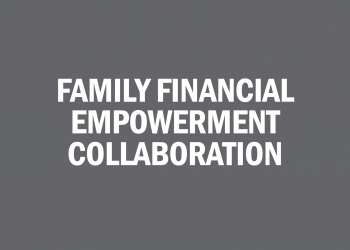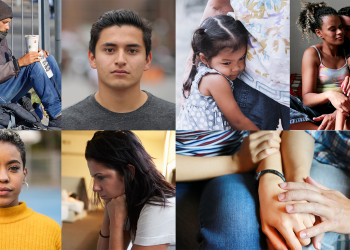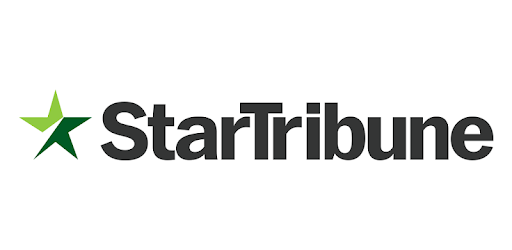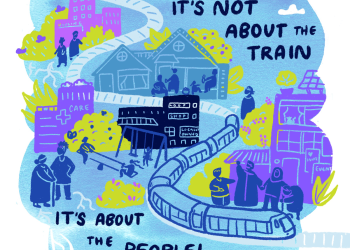Program Time Frame: January 2021 - January 2022
Desired Start Date: Late December 2020 to early January 2021
Compensation: Negotiable
Proposal due date: December 18, 2020 on or before 10:00 a.m. Closing date for all questions: December 04, 2020 before 10:00 a.m.
Pre-proposal conference: if Applicable
For more information, questions, or concerns, please contact Laurel Lilligren (llilligren@peopleservingpeople.org; 612-252-4027).
RFP Background
People Serving People, Center for Urban and Regional Affairs (CURA), Research in Action, and Hennepin County, are pursuing a pilot program to grow family stability by demonstrating sustainable alternatives to self-pay for families experiencing homelessness. We are further pursuing the goal to build family financial power and make homelessness rare, brief, and non-recurring.
Families directly impacted by homelessness and self-pay know what is best for themselves, and we must center their experience, voices, and choices. As people impacted by system decisions, they should inform and influence them.
In January 2020, we collectively launched the Family Financial Empowerment Collaborative (FFEC). An Action Committee was formed with representatives from Hennepin County, People Serving People, Avivo, and current, previous, and returning shelter families to develop a program that is sustainable for all stakeholders. The efforts of the Action Committee resulted in the Families for Finance (FFF) that will operate as an alternative to the county’s self-pay policy at People Serving People starting January 2021.
Hennepin County’s Shelter All Policy for Families mandates the county to provide shelter for all eligible families. If families have the means, they are to contribute to the cost of their shelter stay — self-pay. Public assistance and a considerable amount of earned income is diverted to the county and providers to offset the cost of shelter. In 2019, Hennepin County updated this policy to enable families to keep $70 per family member per month (ex. $210/month for a family of three) for personal needs.
Many families experience self-pay as a source of frustration and a barrier to exiting homelessness. African American and Native American families are overrepresented in the experience of family homelessness. The impact of self-pay further divests African American and Native American community members of their financial resources and prohibits asset building.
Dr. Brittany Lewis’ report for CURA, Illusion of Choice: Evictions and Project in North Minneapolis recommends an end to the self-pay requirement to enable shelters to implement asset-building and empowerment programs for guests. Ending self-pay would allow shelters to play an empowering role for guests through asset-building and financial education. Learn more about the FFEC’s collaborative goals and partners here.
Description of Proposed Services
The Families for Finance (FFF) program, created from human-centered design principles, aims to empower families living in shelters by not only increasing their financial literacy, but also centering cultural awareness and trauma-informed care as program pillars. The shelter families will be given an option to choose between participation in the existing Self-Pay policy and the new Families for Finance program. The Families for Finance program contains financial literacy courses, financial profile development, mentorship, and a savings plan for families.
Individualization is a key principle within the program, where families are given an opportunity to unpack their needs and create a plan unique to them. We are looking for an individual program coordinator or a team of coordinators who have a strong background in providing trauma-informed services that assists families in identifying their own financial traumas, can implement a financial empowerment program, and coordinate between shelter staff and families participating in the program.
Scope of Services
- Develop trusting relationships with participating families living at People Serving People and serve approximately 100 families in the one-year pilot period.
- Conduct one-on-one counselling with participating families to inform them about the Self-pay policy and the alternative Families for Finance program - enabling them to identify the program that best fits their needs.
- Conduct one-on-one assessments with participants using appropriate tools/activities to assess their financial trauma and lived experiences impacting their relationship to their finances.
- Develop work plans for the participants, based on the trauma assessments.
- Assign two or more participants as accountability partners to motivate, support and encourage each other to achieve their respective goals.
- Track participant’s compliance, support evaluation plans, and manage program records.
- Act as a back-up for People Serving People staff implementing the financial literacy classes
- Connect community resources to families who do not receive Minnesota Family Investment Program (MFIP) benefits and help them pursue career goals.
- Plan additional sessions/activities for families with specific traumatic experiences.
- Develop financial profiles with participants that address their financial goals
- Check-in with families regularly, and update financial profiles/work plans based on their changing circumstances.
- Help participants to create a savings account and oversee the program’s “matching” feature, as families save funds.
Minimum Qualifications
- Bachelor’s degree in social work, psychology, public health, or a related field.
- Have experience working in trauma-informed care or trauma-based service implementation.
- Have experience working with communities of color - specifically black, indigenous communities.
- Understand the struggles of families who have experienced homelessness.
- Understand the struggles of family members with disabilities in reading, writing, or comprehension.
- Experience administering financial literacy programming, that includes personal financial management, budgeting, investment, savings, and financial profile development.
- Have the ability to multitask, assist multiple families at the shelter and respond to their unique needs.
- Have excellent interpersonal skills.
- Strong verbal and written communication skills.
Preferred qualifications
- At least 5-years experience working in trauma-informed care or trauma-based service implementation.
- Master’s degree in a relevant field
- Have taken cultural sensitivity training or trauma-informed training.
- Have worked with community leaders for at least 120 community hours.
Values we are seeking
- Human-centered: believes in the necessity of clear/consistent communication, relationship building and investment in individuals' long-term success
- Patience, positivity and creativity
- Accountability and adjustability
To apply, please submit the following to Laurel Lilligren at llilligren@peopleservingpeople.org by December 18th 2020 at 12 p.m.
- Resume (please submit resumes for all applicants if applying as a team)
- Statement on how you/your team would approach this work and your experience implementing similar efforts (1-2 pages)
- Budget for personnel and implementation
Evaluation and Selection
This RFP does not commit the FFEC or People Serving People to award a contract. Submission of a proposal does not obligate nor entitle an applicant to enter into a contract with the FFEC or People Serving People. The FFEC reserves the following rights:
- to determine whether any aspect of a proposal satisfactorily meets the criteria established in this RFP;
- to seek clarification or additional information from any Proposer;
- to negotiate pricing and/or terms with any Proposer or vendor;
- to reject any or all proposals with or without cause;
- to waive any irregularities or informalities in a proposal;
- to cancel or amend by addenda this RFP, in part or entirely;
- to award multiple contracts to Proposers; and/or
- award a contract to a vendor that did not submit a proposal.
Proposals will be evaluated by members of the FFEC and Action Committee.
Evaluation of responsiveness
The FFEC will consider all the material submitted by the Proposer to determine whether the Proposer’s offer is in compliance with the terms and conditions set forth in this RFP. Proposals that do not comply with the provisions in this RFP may be considered nonresponsive and may be rejected.
Evaluation of responsibility
To determine whether a Proposer is responsible, the Evaluation Committee will consider the Proposer’s general qualifications to perform the requested services in a satisfactory manner; financial responsibility; integrity; skill; and ability.
Factors considered may include, but are not limited to, Proposer’s past performance on previous projects; the Proposer’s technical capabilities; individual qualifications of Proposer’s key personnel; and the Proposer’s financial ability to perform on the contract. The evaluation committee will also consider alignment with the description of the proposed services, qualifications, and values sought and herein outlined.
Telephone Interviews
The Evaluation Committee reserves the right to request additional information from Proposers during any phase of the proposal evaluation process. During the evaluation process, the Evaluation Committee may require the presence of a Proposer to make a presentation and/or answer specific questions regarding their Proposal. Proposers should reserve the date above for a possible interview/presentation.
Proposal due date: December 18, 2020 on or before 10:00 a.m.
Closing date for all questions: December 04, 2020 before10:00 a.m.
Pre-proposal conference: if Applicable
For more information, questions, or concerns, please contact Laurel Lilligren (llilligren@peopleservingpeople.org; 612-252-4027).







